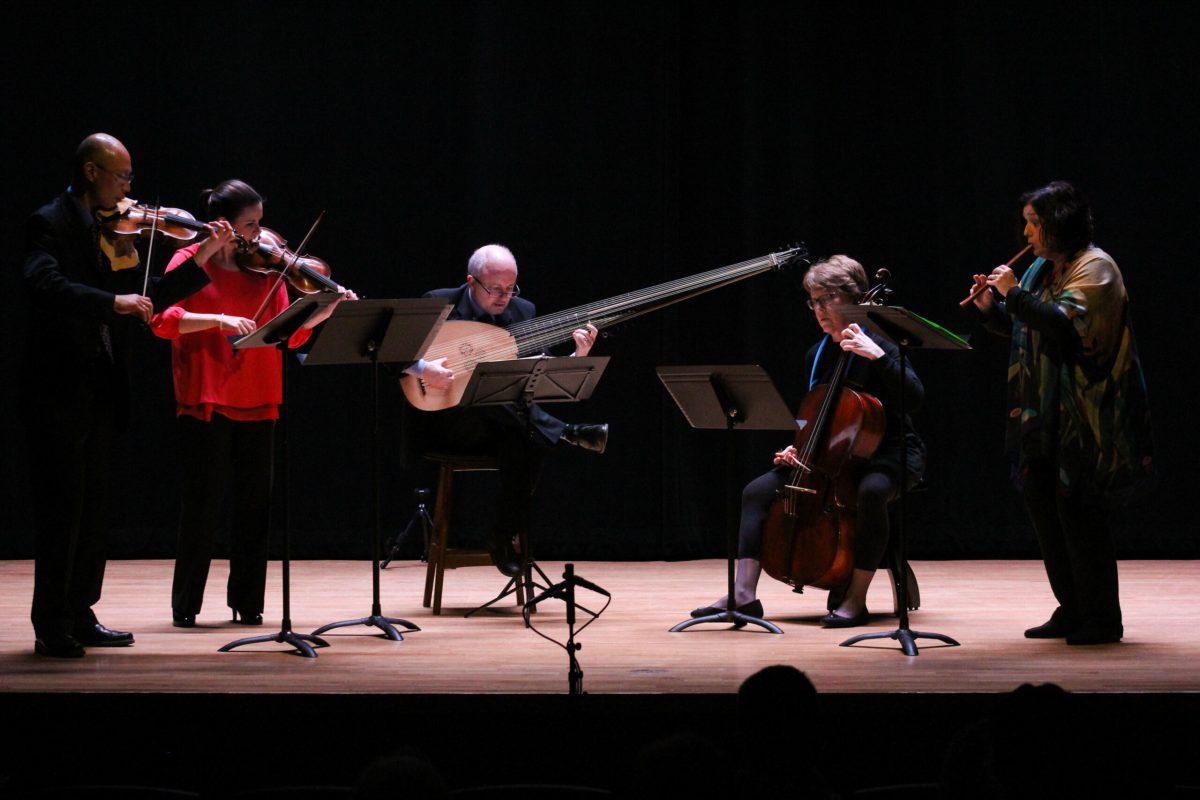The core musicians of Tempesta di Mare, a Philadelphia-based music group, played in Boyd Recital Hall at Rowan University this past Sunday.
The group performed baroque music from 17th and 18th century Venice and Naples for a concert titled “A Tale of Two Italian Cities.” Playing pieces for about an hour, the five members used different instruments: two violins, a recorder, cello, guitar and theorbo.
“[The point] is to just have a good time,” said Gwyn Roberts, the recorder player and one of the directors of the groups. “You don’t have to already know everything. You can enjoy it on, I hope, a lot of different levels.”
The Tempesta di Mare performs either as chamber players, like they did at this concert, or as an orchestra. This group was comprised of the leaders of the different sections in the orchestra, which has up to 22 musicians.
“It’s such a privilege, getting to see people of such a high skill level for free,” said Richard Chao, a freshman mechanical engineering major.
Chao came to see the concert after seeing it listed on the Honors Announcer. He felt the show was “really impressive.” A guitar player himself, he had been excited about hearing the different instruments.

The song selections were chosen to highlight two very important Italian musical centers, Venice and Naples. Choosing the most contrasting pieces they could, the program included three pieces from each city. From there, the group played pieces from three different time periods, spanning the first and second half of the 17th century and the 18th century.
When asked about her favorite song of the night, Roberts said, “I enjoy the one I’m playing at the time the most. I think the last set, the Falconieri, was the most joyful and fun of all. That’s why we put it last.”
The last set referenced consisted of pieces from “Canzone Con Il Basso Continuo” by Andrea Falconieri. The cellist, Lisa Terry, said it was “more like renaissance music than anything.” She also described it as “beautiful and timeless.”
“A lot of times I hear people think of classical concerts as being stuffy or something like that and I don’t think it needs to be,” Roberts said. “I think there’s a lot of joy to be had and a lot of contrast and emotion and fun, and that’s what we’re looking for.”
For questions/comments about this story, email [email protected] or tweet @thewhitonline.























































































































































!["Working with [Dr. Lynch] is always a learning experience for me. She is a treasure,” said Thomas. - Staff Writer / Kacie Scibilia](https://thewhitonline.com/wp-content/uploads/2025/04/choir-1-1200x694.jpg)









































